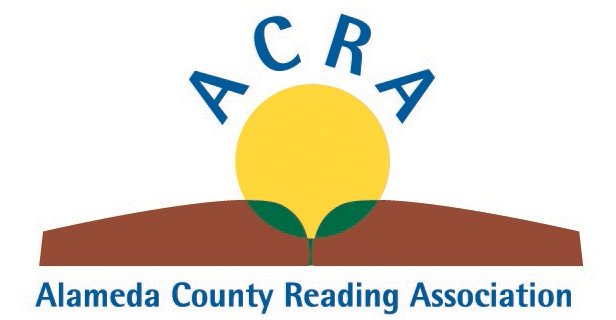An ACRA Member opportunity
ACRA Members who are current K-12 educators may apply for a $250 mini-grant to use for the advancement of literacy in their classroom or program. Mini-grants can be used for appropriate tuition, registration, professional or classroom materials, etc., but may not be used for travel or living expenses.
The applicant must:
be a credentialed educator
be a current member of the Alameda County Reading Association
be working in kindergarten through twelfth grade public or private school
plan to use the Mini-Grant funds to improve or strengthen literacy
Mini-grants can be used for appropriate tuition, registration, professional or classroom
materials, etc., but may not be used for travel or living expenses.
The award of Mini-Grant funds is determined by the ACRA Executive Board and decisions are final.
To apply, please email awards chairperson, Dr. Sybil Hoffman, a document containing the following information (you many choose to use the template linked here):
Name:
Email:
Phone:
Teaching Position or Grade Level:
Years Taught:
Mailing Address/City/Zip:
School:
District:
School Address/City/Zip:
Date of Application:
Are you currently an ACRA member?:
Please describe the learning objectives of your project and/or how the funds will be used to improve or promote literacy:
Please include an approximate itemized budget:
Examples of Past Awards
2022
Jeannette Alday, Principal Pioneer Elementary School, NHUSD
Pioneer Elementary has a Sensory Room to help students. She used her ACRA Mini Grant funds to buy sensory books for that room.
2022
Cathy Day, 4th Grade Teacher, Emanuele Elementary, NHUSD
Thank you for my ACRA mini-grant. I used my funding to give my classroom library a refresh, buying over 100 new fiction and nonfiction books featuring diverse characters and topics. I started something called a "first chapter free preview" where I would use my read aloud time to read the first few pages of a new book. Rather than continuing the next day, I would tell my students that if they wanted to continue they could get the book from the library (or a similar one from the same series) to use during independent reading. Immediately, the interest in independent reading went up! Something I noticed immediately with these more modern books as I read them aloud was that the updates were about far more than just representation-- the situations, the characters, the settings and backstories, and even the language used all just felt more relevant and authentic to my students. This classroom library refresh was much needed and I thank you and the ACRA team for your support in my classroom!
2021
Kathy Langham with Adam Tam
Kathy is a retired 5th grade teacher and Elementary Principal who taught in New Haven for 22 years. Adam Tan is a Junior at Irvington High School and is working on becoming an Eagle Scout. Adam talked with the principal of their local school, Harvey Green Elementary, and she suggested he build a Little Library and place it on the school campus. Adam is in the process of finding donations to support his project. Our mini-grant will help him reach his goal of providing a Little Library for the community. Anyone can take a book from the library. They can keep the book, return it and get another one and/or donate books to the library. Little Libraries are an excellent way to involve the community in increasing people’s access to books.
2021
Colleen Sill
Colleen is a 5th grade teacher at Amador Elementary School in the Dublin Unified School District. She has started a “calming corner” in her room that students can access just to take a break and breathe. She wants to add short story books for students to read about feeling and regulating their feelings, especially a section of books on social emotional wellness. She also wants to add books on diversity as well as books whose main character is an underrepresented minority to the classroom library.
2018
Shea Gregory
Shea is a teacher at Treeview Elementary School in the Hayward Unified School District. She meets once a week with 1st and 2nd grade African-American girls. She uses interactive read-aloud as a springboard for discussions on culture, identity, and young womanhood. Through these discussions they build care for one another and grow in confidence and pride in what it means to be a Black girl growing up in America today.
She wants to expose the girls to all types of literature, but her main focus is text by authors of color with characters who look like the children’s faces before her. She wants the girls to get used to seeing themselves in text and to feel good about that. ...and to know that they can write stories about their lives and experiences - that their lives matter and have value.
Shea started the group last year when she saw the girls expressing internalized anti-black bias. The interactive read-aloud is the base, and students expand their ideas through writing and art as a means of exploring identity and self-expression.

